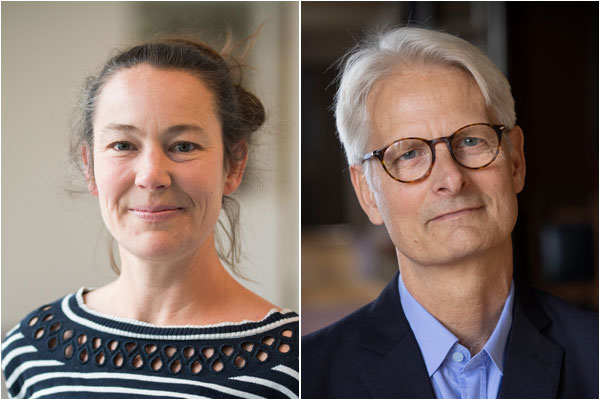Docent Åsa Johansson received SEK 3 million for her research on contraceptives that prevent ovarian and uterine cancer. We already know that some hormonal contraceptives can reduce the risk of these cancers, but new types of contraceptives have become more common in the last decade, and we don’t know how they affect cancer risk. The grant will enable the research team to determine the kinds of hormonal contraceptives that best protect against ovarian and uterine cancer without increasing the risk of other diseases.
What does this mean for your research?
“It means we can do the research we believe is important. Ovarian cancer is the deadliest cancer there is, with around a 50% chance of survival five years after diagnosis. That’s why preventive methods are so important. We are trying to identify the contraceptives that protect against ovarian cancer but don't increase the risk of, for example, breast cancer, a type of cancer that can be triggered by the hormones in some of today’s contraceptives. Using the Swedish Drug Register and Cancer Registry, we will conduct extensive studies to determine the protective effect of different preparations with different hormonal content that are taken orally or administered via another route.”
What happens now?
“We are mainly working on statistical analyses and currently trying to systematise the register data, which contains information on drug use and all cancer diagnoses for over four million Swedish women. We look at each other and wonder if we can really answer all the questions in three years, but I think we will. Hopefully, we will have the first results already this year.
Consultant and Professor Gustaf Ljungman received SEK 3 million to develop a mouth cooling device for children being treated for cancer. A common and painful side effect of chemotherapy and radiotherapy is inflammation of the mouth, known as oral mucositis. Mucositis can be reduced or prevented by sucking on an ice cube or rinsing the mouth with ice water during treatment. However, many children find it uncomfortable. They may experience toothache, headache or nausea. Gustaf Ljungman’s intra-oral air cooling device is designed to help them.
What does the grant mean for your research?
“The grant means that we can continue our research on how to prevent mucositis. In particular, it will now be essential to investigate how our oral cooling device works and is tolerated in children with cancer.”
What happens now?
“We will continue to develop the device and also the 3D-printed mouthpieces. There is also a lot of regulatory work to be done before we can eventually move forward and investigate how our oral cooling device works and is tolerated in children with cancer.
